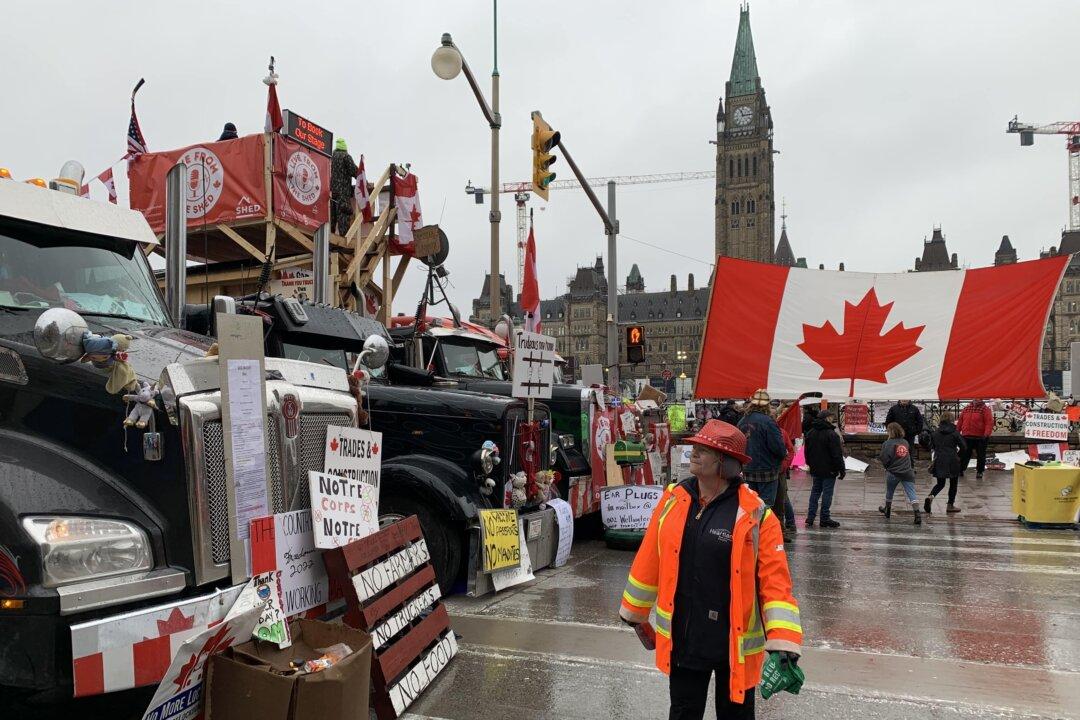OTTAWA—A deal between Freedom Convoy organizers and the City of Ottawa to move the protesters’ large trucks from residential neighbourhoods to Wellington Street was an “extraordinarily complex undertaking,” the former mayor’s chief of staff testified at the trial of Tamara Lich and Chris Barber on Sept. 21.
“I was told on at least a few occasions that it would be extraordinarily complex as an undertaking to convince every single truck driver that needed to be convinced at the appropriate time, to be present, to be there with their keys, and to move their rig at the time,” testified Serge Arpin, outgoing chief of staff to Jim Watson, who was the mayor of Ottawa at the time of the convoy protests in January and February 2022.





